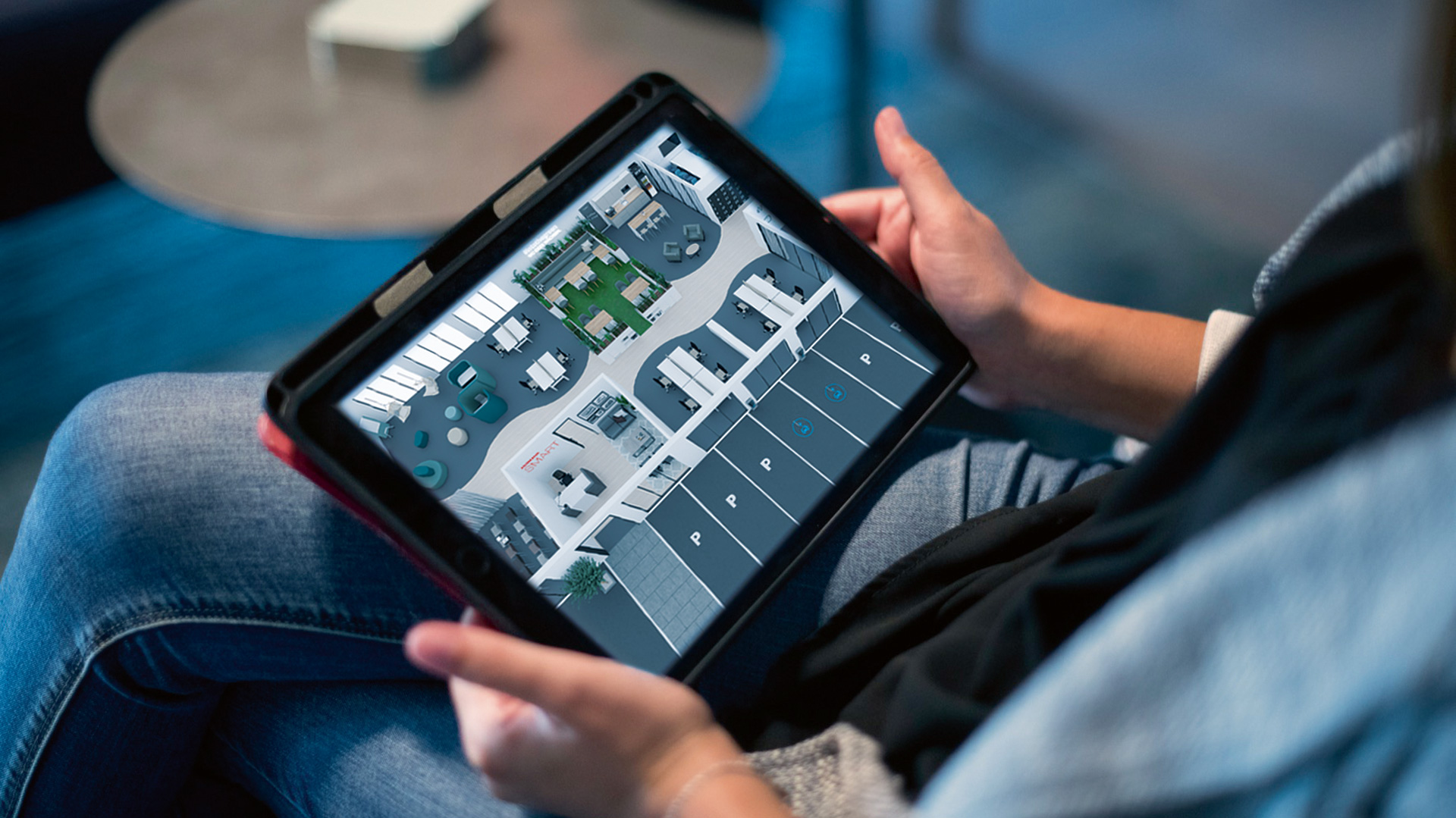
The offices of tomorrow: more than single locations
Globalisation and digitalisation make a powerful combination: they enable work in virtually any location in the world. How is this changing our perception of work areas?
Some fundamental changes have taken place in the world of office work in the last few years – and these are also reflected in the design of modern office spaces. This transformation is based on both trends in society as a whole and generational trends, that are changing the way we work across all industries. The innovations in the workplace go hand in hand with megatrends such as individualisation, globalisation and digitalisation. Many routine tasks will no longer be carried out by people, but by algorithms. Work in future will also be carried out in open-source communities, where all the parties integrate with each other on a level playing field. Additionally, the changing attitudes to work in general of generation Y – born between 1977 and 1998 – are becoming more and more evident. Young people want flat hierarchies, are tech-savvy and like their freedom. For them the workplace is disconnected in many ways from a fixed location in an office. There are many different sorts of changes made in response to social and generational transformations which enable smooth transitions into the right kinds of working environments. These have included individual working from home arrangements, mobile and flexible offices along with freely selectable working hours that are just as much part of the repertoire of modern working life as coworking or free seating.
Working from home: is it here to stay?
The Covid-19 pandemic has ensured that, within a very short time, many employees have had to exchange their office workplace with their own homes. So Covid-19 can be identified as an accelerator for change. While previously the prevailing opinion in most companies was that “working from home won’t work or would be really difficult to set up”, now everyone agrees that “working from home works after all!” This crisis has shown companies that their employees do not always have to work in the office. Even though working from home has certain advantages, not all employees felt good in their home office. Factors such as slow internet connections, uncomfortable kitchen chairs, distraction from family members and children and well as being socially isolated from colleagues – along with the loss of information that goes with that – have often made people wish to work back at the office again.
As regular interaction with colleagues and in teams is essential for creative and innovative work, this raises the question of where and how “office” will take place in the future.
Smart Office: greater flexibility in space and time
With new and better technologies, considerably more workplaces will in future be independent of any fixed location. An example of this is where people spend only one day a week working in the office. Companies will in future be accessible from almost anywhere in the world through a corporate cloud. Several million networked end devices and users who already have access to company data from everywhere through cloud solutions today, will be setting great challenges for IT managers in terms of future IT security and data security.
The Smart Office system enables totally new and attractive options for structuring day-to-day work. In spite of any reduced attendance times, office workplaces can easily be booked from home using smart booking systems and personal, individual workplace configurations can then be accessed.
At the same time, a smart office environment can plan the composition of teams more intelligently in advance, allocate workplaces and, this way, ensure the best possible conditions that may change from day to day.
Changes mean challenges
Modern office furnishing that is tailored to the requirements of New Work is not enough in itself. What is important is that companies take a holistic approach to the change and gear themselves up to all aspects of their new world of work and all its demands. As the company culture should be reflected in its world of work.
What’s true is that traditional approaches to work have finally run their course, yet they are still firmly rooted in people’s minds.
Consequently the challenge with the change is often in the people themselves. Some of them will always find their way back to their familiar place of work, while others are more independent and don’t feel fixed to any location. This is, nevertheless, where personalised indicators are required that will ideally be monitored by means of smart office solutions.
Managers take on a lot of responsibility as part of the change process, as the measures and changes for the New Work will only function smoothly if all the employees have got it in their heads. Developments in companies will only be accepted and successfully implemented if managers get involved and actively set an example with the transformation from the very beginning. This also requires a change in the general management culture. So management in future means more leadership from a distance, fewer checks yet greater responsibility for the employees, with clear guidelines, firmly set time management and objectives for each task. The process of change from traditional employee management is already in full swing. Managers must be able to combine and manage both IT-savvy people and traditional hierarchies. More flexible team players and coaches are required.
Planning and implementing the Office environments of the future
In order to meet the new demands for the offices of tomorrow, we at ASSMANN 4ROOMS have worked together with our customers to develop tailor-made furnishing concepts, that holistically take all the factors from process and planning right through to use of space into account, in terms of emotion, function and services. This creates individual, inspiring places where people are happy to work and feel at ease.
